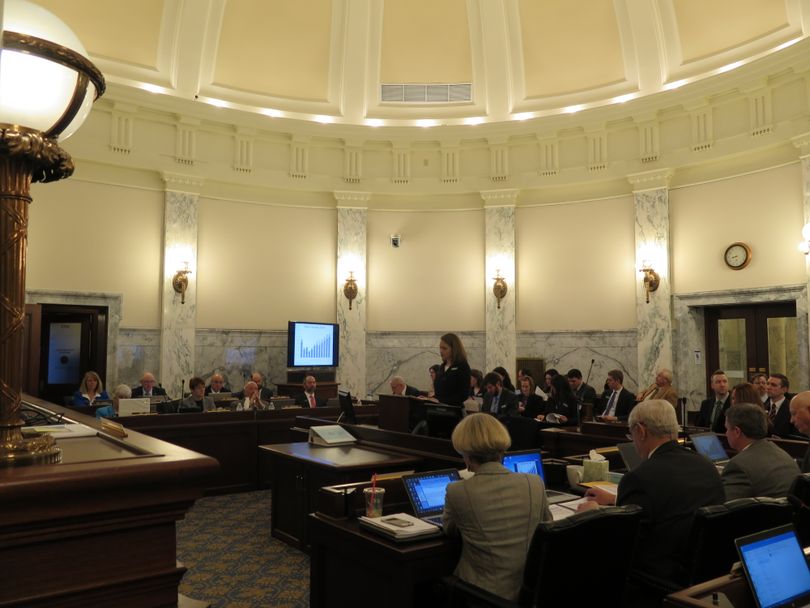JFAC’s first look at Otter’s budget proposal turns up a couple of holes…

Jani Revier, Gov. Butch Otter’s budget director, is presenting the governor’s budget to the Joint Finance-Appropriations Committee this morning. Some new information that’s emerged: Due to a drafting error, half of the “surplus-eliminator” transfer that lawmakers approved last year, to split any year-end surplus funds between the state’s rainy-day savings and projects at the Idaho Transportation Department, didn’t happen. That means $27.5 million wasn’t transferred to ITD’s Strategic Initiatives Fund – and Otter’s budget proposal doesn’t include making that transfer.
“Transferring the $27.5 million to the strategic initiatives fund will require legislative action,” Revier told JFAC. “Please note that this transfer is not reflected in any of the numbers that I have presented to you today, so it would reduce the current bottom line.”
That means if JFAC wants to complete the transfer that lawmakers approved last year, it’s starting out $27.5 million behind compared to the governor’s budget proposal.
Another item Revier highlighted: While most of the tax-conformity issues that Idaho is looking at as a result of the federal tax bill involve the fiscal year 2019 budget, which lawmakers will be setting during their newly started session, two provisions actually involve fiscal year 2018. One is a change in the threshold for itemizing medical expenses from 10 percent of income to 7.5 percent of income. Revier said that would reduce Idaho’s general fund revenues in the current year – fiscal year 2018 – by $6.4 million. An additional provision regarding international companies repatriating foreign income also will have impact, but the amount is unknown as yet.
JFAC members haven’t yet begun questioning Revier, who is now going over Otter’s spending proposals for next year. But yesterday, JFAC Co-Chair Shawn Keough, R-Sandpoint, expressed concern about the $27.5 million transfer not being reflected in the governor’s budget calculations. “In my view, it is the law – it passed,” she said. “That bill passed, and so there’s this commitment in law that we share that surplus money in the way that was envisioned by that bill. So we’ll have to account for that someplace else. And so what does that mean? That’s $27 million that has to come from somewhere.”
